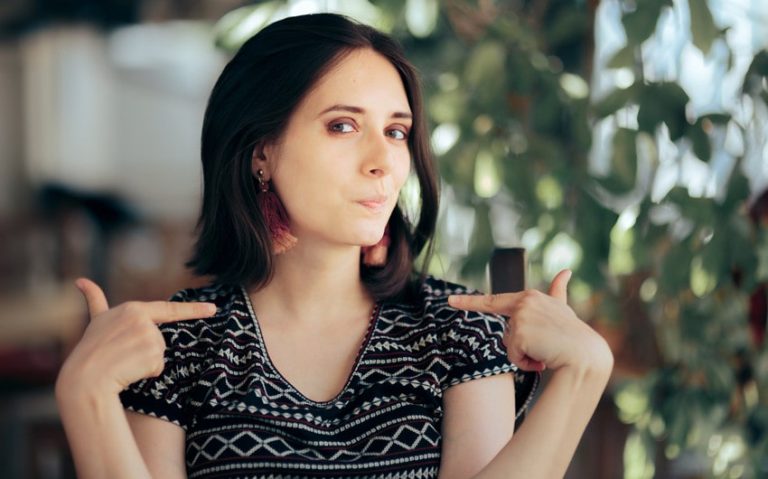Boo Meaning in a Relationship: What You Need to Know
In today’s world, terms of endearment like “boo” have become popular in relationships. If you’ve ever wondered about the boo meaning in a relationship, you’re not alone. “Boo” is a slang term used to refer to a significant other, often implying affection, love, and intimacy. It’s a casual, sweet way to address someone you care about deeply.
Let’s dive deeper into the origins, usage, and significance of this charming term in modern romance.
Origin of the Term “Boo”

The term “boo” has an interesting and varied history. Its roots can be traced back to African-American Vernacular English (AAVE), where it was used as a term of endearment. Over time, it has evolved and gained widespread popularity across different cultures and demographics.
Historical Context and Evolution
The word “boo” likely originated from the French word “beau,” meaning beautiful or handsome, which was used to refer to a lover. Over time, the term was adapted into AAVE, where it became a common way to refer to one’s partner. In the late 20th century, the word gained traction through music, particularly hip-hop and R&B, where artists often used “boo” to denote a romantic partner.
Cultural Influences and Early Usage
The term “boo” became mainstream in the 1990s and early 2000s, largely due to its frequent use in popular music and media. Songs like “Boo’d Up” by Ella Mai and various references in hip-hop culture helped cement its place in everyday language. Today, “boo” is widely recognized and used across different age groups and backgrounds, signifying a close, affectionate bond between individuals.
What Does Boo Mean in a Relationship?
In the context of a relationship, “boo” is a term of endearment used to refer to a significant other. It signifies love, intimacy, and a special connection between partners. When you call someone “boo,” you express affection in a playful and loving manner, similar to using terms like “baby” or “honey.” This term helps to make interactions feel more personal and endearing, strengthening the bond between partners.
Usage in Romantic Relationships
In romantic relationships, “boo” is commonly used to convey deep affection and closeness. It reflects a special bond and can enhance the feeling of intimacy. Partners use “boo” to express their love and care for each other, making the relationship feel warmer and more connected.
Usage in Friendships and Casual Settings
While primarily used in romantic contexts, “boo” can also be used among close friends. In this setting, it denotes a strong, platonic bond and shows affection and care without romantic implications. Using “boo” in friendships maintains a close, affectionate connection, highlighting the versatility of the term.
The term “boo” in a relationship, whether romantic or platonic, reflects a deep sense of affection and closeness, making it a popular and endearing way to address someone you care about.
How to Use “Boo” in a Relationship
Using “boo” in a relationship can add a layer of warmth and intimacy to your interactions. Here are some tips and examples on how to incorporate this affectionate term into your daily conversations.
1. Casual and Everyday Conversations
Incorporate “boo” into casual, everyday conversations to make your partner feel special and loved. This can be as simple as adding it to your greetings, farewells, or when checking in on each other.
Examples:
- “Good morning, boo! Did you sleep well?”
- “Hey, boo, how was your day?”
- “I missed you, boo. What’s for dinner tonight?”
2. Expressing Affection and Appreciation
Use “boo” when expressing affection or appreciation to enhance the emotional impact of your words. It shows that you care deeply and value your partner.
Examples:
- “You’re amazing, boo. Thank you for always being there for me.”
- “I’m so proud of you, boo. You did a fantastic job!”
- “You make me so happy, boo.”
3. During Special Moments
Special moments and celebrations are perfect opportunities to use “boo.” It adds a sweet, personal touch to your expressions of love during anniversaries, birthdays, or just because.
Examples:
- “Happy anniversary, boo! I’m so grateful to have you in my life.”
- “Happy birthday, boo! You deserve all the happiness in the world.”
- “Just wanted to say I love you, boo.”
4. Texting and Digital Communication
In the digital age, texting and online communication are significant parts of many relationships. Using “boo” in texts, social media, or video calls can maintain the affection and closeness, even when you’re apart.
Examples:
- “Goodnight, boo! Sweet dreams.”
- “Can’t wait to see you later, boo.”
- “You looked great in your meeting today, boo.”
5. Playful and Flirtatious Use
“boo” can also be used in a playful or flirtatious manner to keep the relationship fun and lively. It can be part of light-hearted banter or teasing.
Examples:
- “You’re looking extra cute today, boo.”
- “Stop being so adorable, boo!”
- “Can’t get enough of you, boo.”
6. Using “Boo” in Friendships
If using “boo” with close friends, ensure it’s understood as a platonic term of endearment. It can be used to show that you care about your friends deeply and value your relationship.
Examples:
- “Miss you, boo! Let’s hang out soon.”
- “Thanks for being such a great friend, boo.”
- “You’re the best, boo.”
Other Terms of Endearment
When expressing affection in a relationship, people often use various terms of endearment. Each term carries its own unique connotations and emotional significance. Here are some common terms of endearment and their meanings:
1. Baby
“Baby” is a widely used term of endearment in romantic relationships. It conveys a sense of care, protection, and tenderness. It often signifies a nurturing and loving relationship.
Examples:
- “Good morning, baby! Did you sleep well?”
- “I love you so much, baby.”
2. Honey
“Honey” is a warm, sweet term that conveys affection and comfort. It is commonly used in both romantic relationships and family settings to express care and love.
Examples:
- “How was your day, honey?”
- “Thank you for everything, honey.”
3. Darling
“Darling” has a charming, classic feel and is often used in romantic contexts. It signifies deep affection and admiration, often reflecting a more formal or traditional relationship.
Examples:
- “You look beautiful tonight, darling.”
- “Darling, you mean the world to me.”
4. Sweetheart
“Sweetheart” conveys a sense of deep affection and endearment. It is warm and heartfelt, making it a popular choice for expressing love and appreciation in romantic relationships.
Examples:
- “Goodnight, sweetheart. Sweet dreams.”
- “You’re my everything, sweetheart.”
5. Love
“Love” is a deeply affectionate term that conveys strong emotions of commitment and care. It is frequently used in serious romantic relationships and is common in British English.
Examples:
- “I’ll see you soon, love.”
- “You’re the love of my life.”
6. Dear
“Dear” is a gentle and affectionate term that is often used in both romantic and familial contexts. It conveys a sense of fondness and closeness.
Examples:
- “How are you feeling today, dear?”
- “Thank you, dear, for all your help.”
7. Angel
“Angel” is a term that conveys purity, goodness, and love. It is often used to express how much someone means to you and how special they are.
Examples:
- “You’re my angel.”
- “Thank you for being there, angel.”
8. Sweetie
“Sweetie” is a playful and affectionate term often used in romantic relationships and with children. It conveys warmth and fondness.
Examples:
- “Hey, sweetie, how was your day?”
- “You’re such a sweetie.”
Why “Boo” is Popular in Relationships
The term “boo” has gained popularity in relationships for several reasons. Its casual, affectionate nature, along with its emotional significance, makes it a favorite among many couples.
1. Emotional Significance and Intimacy
Using “boo” creates a sense of emotional closeness and intimacy. It’s a simple, genuine way to express love and affection, making your partner feel cherished and special. This term helps strengthen the emotional connection between partners, reinforcing their bond.
2. Casual and Playful Nature
“Boo” stands out because of its casual and playful nature. It’s light-hearted and fun, making daily interactions more enjoyable. This versatility allows it to be used in various contexts, from tender moments to playful banter, enhancing the relationship’s dynamic.
3. Modern and Trendy Appeal
The term has a modern, trendy appeal, especially among younger generations. Its widespread use in music, movies, and social media has helped popularize it, making it a fashionable choice for expressing affection. “Boo” feels contemporary and aligns with current cultural trends.
4. Inclusive and Non-Gendered
“Boo” is non-gendered, making it suitable for anyone, regardless of gender identity. This inclusivity allows it to be used freely in diverse relationships, including heterosexual and LGBTQ+ partnerships, broadening its appeal.
5. Media and Pop Culture Influence
Media and pop culture have significantly influenced the popularity of “boo.” Its frequent use in songs, movies, and TV shows helps normalize it in real-life relationships. Celebrities and influencers using the term also contribute to its trendiness.






